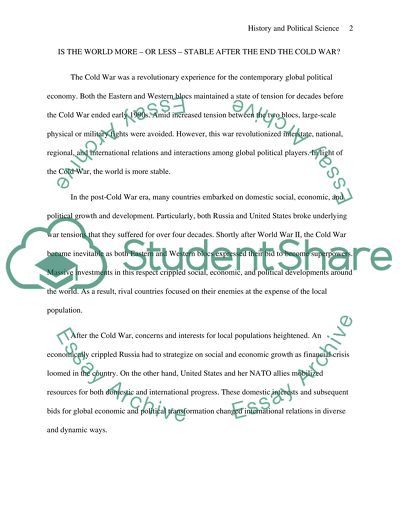Cite this document
(“Is the world more or less stable after the end the cold war Essay - 1”, n.d.)
Retrieved from https://studentshare.org/history/1638662-is-the-world-more-or-less-stable-after-the-end-the-cold-war
Retrieved from https://studentshare.org/history/1638662-is-the-world-more-or-less-stable-after-the-end-the-cold-war
(Is the World More or Less Stable After the End the Cold War Essay - 1)
https://studentshare.org/history/1638662-is-the-world-more-or-less-stable-after-the-end-the-cold-war.
https://studentshare.org/history/1638662-is-the-world-more-or-less-stable-after-the-end-the-cold-war.
“Is the World More or Less Stable After the End the Cold War Essay - 1”, n.d. https://studentshare.org/history/1638662-is-the-world-more-or-less-stable-after-the-end-the-cold-war.


